You’ve made it through the toddler tantrums, survived the “terrible twos,” and just when you thought things were getting easier—bam! Your 4-year-old suddenly starts acting like a tiny tornado with a megaphone.
Sound familiar?
If your once-sweet preschooler is now throwing unexpected tantrums, ignoring directions, or pushing boundaries harder than ever, take a deep breath—you’re not alone, and you’re definitely not failing. This behavior is common, normal, and—believe it or not—developmentally important.
Let’s explore what’s really going on behind the scenes of your child’s sudden misbehavior.
🌪️ So… Why Is My 4-Year-Old Acting Out All of a Sudden?
1. Brain Growth and Emotional Overload
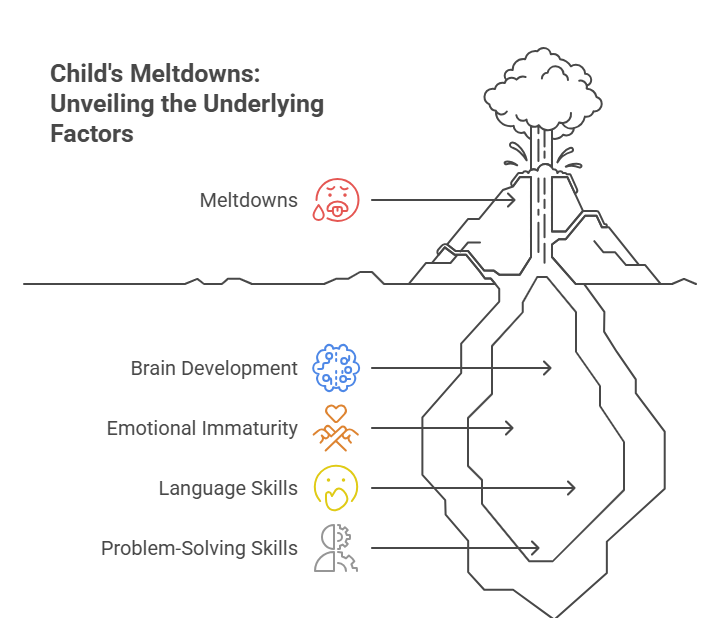
At age 4, your child’s brain is developing rapidly—especially in the areas that control emotion, language, and problem-solving. They suddenly have big feelings, but not yet the full ability to manage or express them appropriately. Cue the meltdowns.
🧠 Translation: “I’m feeling SO much, but I don’t know how to tell you!”
2. Testing Independence (and Your Limits)
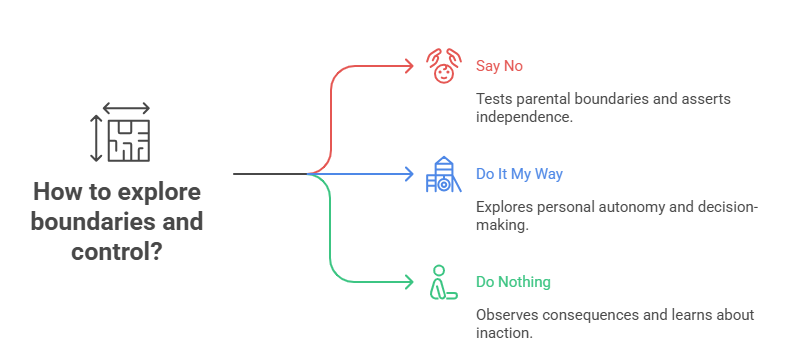
Four-year-olds are like mini-scientists, constantly testing hypotheses:
- “What happens if I say no?”
- “What if I do it my way?”
- “What if I don’t do it at all?”
They’re not trying to be “bad”—they’re exploring where your boundaries are and what they’re allowed to control. This helps them build confidence and autonomy.
🔍 Translation: “I want to do things myself, even if I mess up!”
3. Routine Changes or Stress
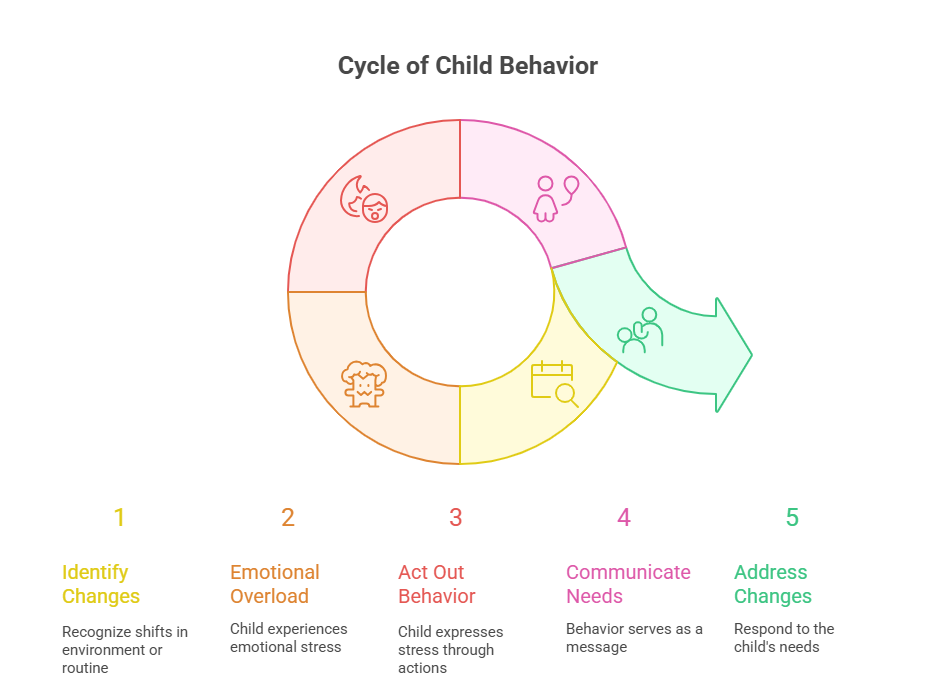
Have there been changes in daycare, new siblings, a move, or even subtle shifts in routines or family dynamics? A 4-year-old may not voice it directly, but they’ll act it out. Behavior is communication, especially at this age.
💬 Translation: “Things feel different, and I don’t know how to deal with it.”
4. Seeking Attention (Even Negative Attention)
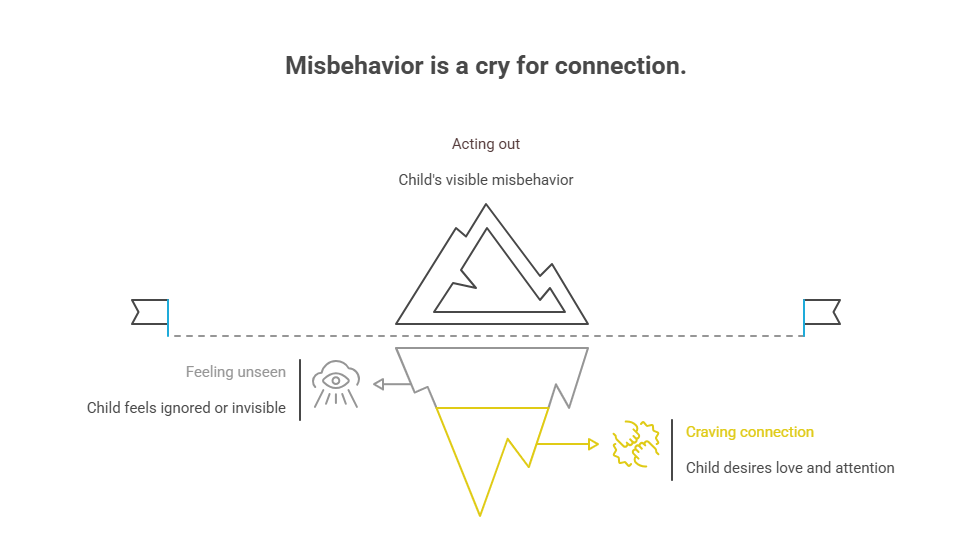
If they feel unseen, your child may act out simply to make sure you’re watching—even if it means getting in trouble. Kids crave connection. Sometimes, misbehavior is just a loud way of asking for love.
❤️ Translation: “Notice me! Spend time with me!”
5. They’re Overstimulated, Tired, or Hungry
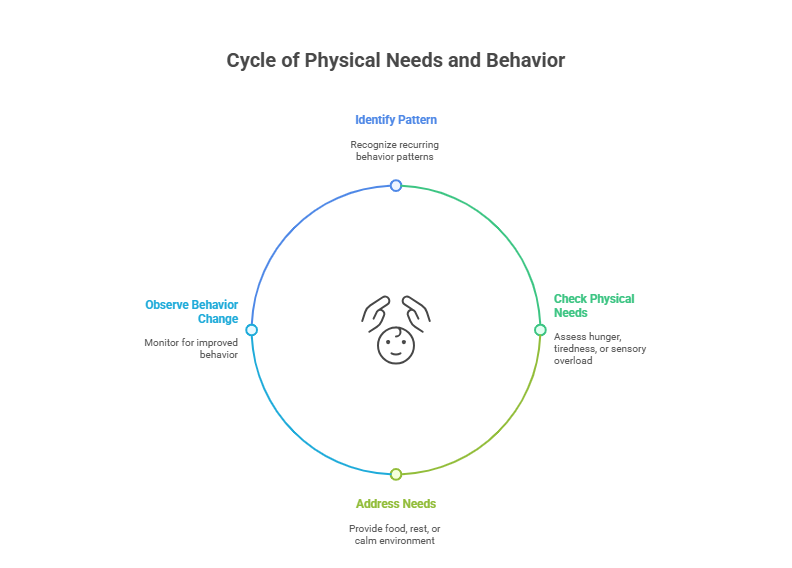
It sounds simple, but physical needs often sneak under the radar. Is your child acting out at the same time every day? Look for patterns. A cranky outburst after school or before dinner could be more about low blood sugar or sensory overload than defiance.
🍽️😴 Translation: “I’m running on empty!”
👩👦 What Can You Do? (Without Losing Your Mind)
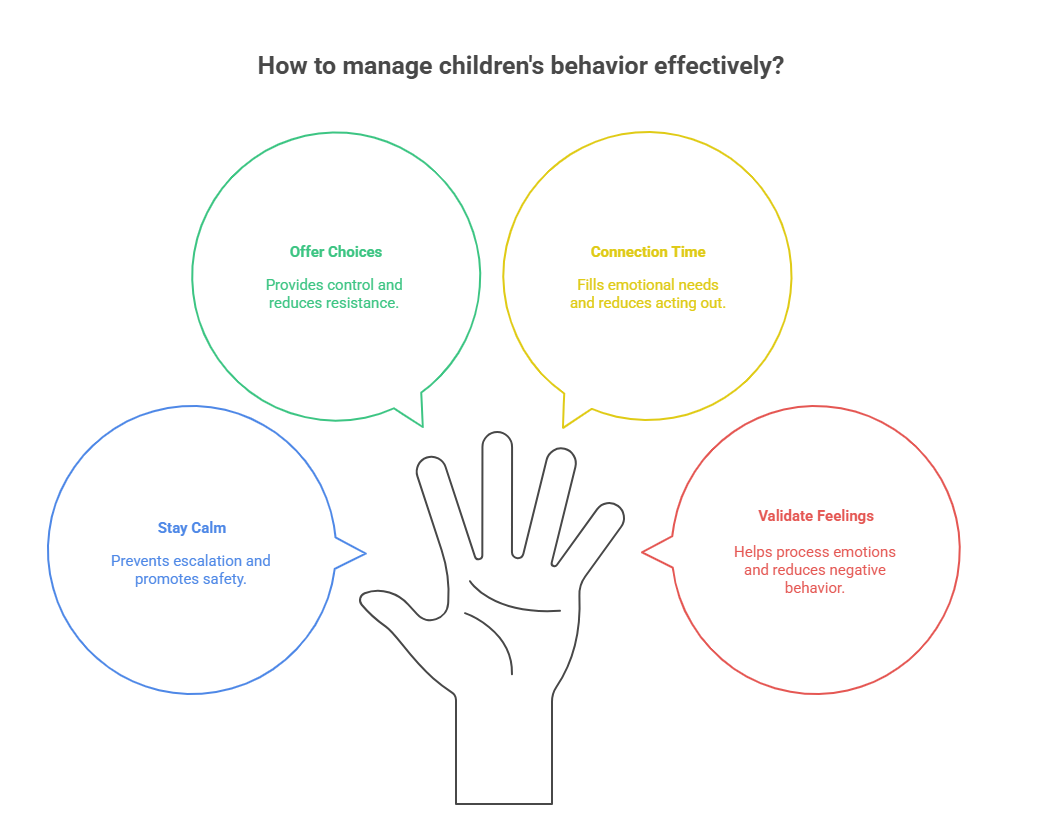
Here are some gentle but effective ways to respond:
✅ Stay Calm and Consistent
Yelling may escalate the behavior. Instead, hold the boundary with calm authority. Predictability helps kids feel safe.
🧸 Offer Choices
Let them feel some control:
“You can pick the red shirt or the blue one.”
“Do you want to clean up now or after we sing a song?”
🕰️ Fill Their Connection Tank
Set aside 10–15 minutes of one-on-one, no-distraction playtime daily. When kids feel emotionally full, their need to act out drops.
💬 Validate Their Feelings
“I can see you’re really upset. It’s okay to feel mad, but not okay to hit.”
Help them name and process what’s going on inside.
🌈 Final Thought: Misbehavior Is Not a Moral Failing—It’s a Message
Your 4-year-old isn’t broken, and you’re not a bad parent. This sudden misbehavior is part of their growing journey—confusing, chaotic, and beautiful all at once.
They’re learning how to feel, communicate, and navigate the world. And with your guidance (and a whole lot of patience), they’ll figure it out—one wild outburst at a time.






